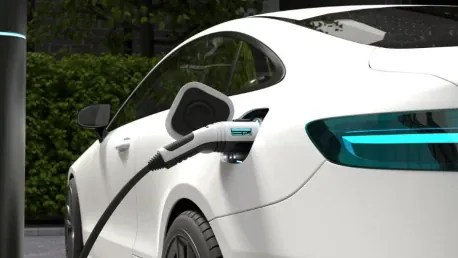Yuma Energy has accomplished a remarkable milestone in India’s rapidly expanding electric two-wheeler (2W) sector by achieving one million battery swaps monthly. This achievement not only marks a significant step forward for the company but also reflects the increasing acceptance and demand for efficient battery-swapping solutions in the country. Operating 175 battery swapping stations across ten Indian cities, including recent expansions in Hyderabad, Yuma Energy aims to further increase its network to 300 stations by year-end. Their presence is spread across six metropolitan areas such as Bengaluru, Mumbai, and Delhi, and includes non-metropolitan cities like Indore and Kochi. The company’s drive to alleviate range anxiety and improve charging infrastructure for electric vehicle (EV) users underscores the importance of their contributions to the EV ecosystem. With an impressive 99% station uptime and an average swap time of under one minute, Yuma Energy is setting new standards for operational efficiency in the EV industry.
Addressing Range Anxiety and Charging Infrastructure
One of the most significant challenges facing the widespread adoption of electric two-wheelers in India is range anxiety, a concern primarily stemming from the limited availability of charging infrastructure. For urban commuters who may not have access to personal charging points, this issue becomes even more pressing. By implementing a robust network of battery swapping stations, Yuma Energy addresses this challenge head-on. Instead of waiting for hours to charge a battery, users can swap out their depleted batteries for fully charged ones in under a minute. This rapid battery-swapping process drastically reduces downtime and enhances the overall convenience of using EVs. The company’s current network, spanning across major cities and expanding rapidly, ensures that users have ready access to these facilities, helping to instill confidence in the feasibility of long-distance travel on electric two-wheelers.
Furthermore, Yuma Energy’s partnership with multiple public and private entities has enabled them to integrate their swapping network seamlessly across urban and semi-urban locales. Collaborations with organizations like the Municipal Corporation of Delhi, Indian Railways, and Bangalore Metro Rail Corporation Limited have played a critical role in broadening the reach of their infrastructure. These partnerships not only enhance the accessibility and efficiency of their services but also indicate a broader acceptance and support for their model from influential stakeholders. By fostering such collaborations, Yuma Energy is not just building a network of stations but creating a comprehensive ecosystem that supports the sustainable growth of electric mobility in India.
The Impact on the Indian EV Market
Yuma Energy has reached a remarkable milestone in India’s rapidly growing electric two-wheeler (2W) market by achieving one million battery swaps each month. This feat not only signifies a major step forward for the company but also highlights the increasing acceptance and demand for efficient battery-swapping solutions in India. Yuma Energy operates 175 battery swapping stations across ten cities, including recent expansions in Hyderabad. They aim to increase their network to 300 stations by the end of the year. Their presence spans six metropolitan areas like Bengaluru, Mumbai, and Delhi, as well as smaller cities such as Indore and Kochi. Yuma Energy’s efforts to alleviate range anxiety and improve charging infrastructure for electric vehicle (EV) users emphasize their critical role in the EV ecosystem. With an impressive 99% station uptime and an average swap time of less than one minute, Yuma Energy is setting new benchmarks for operational efficiency in the EV industry. Their rapid growth reflects the broader shift toward sustainable transportation solutions in India.









